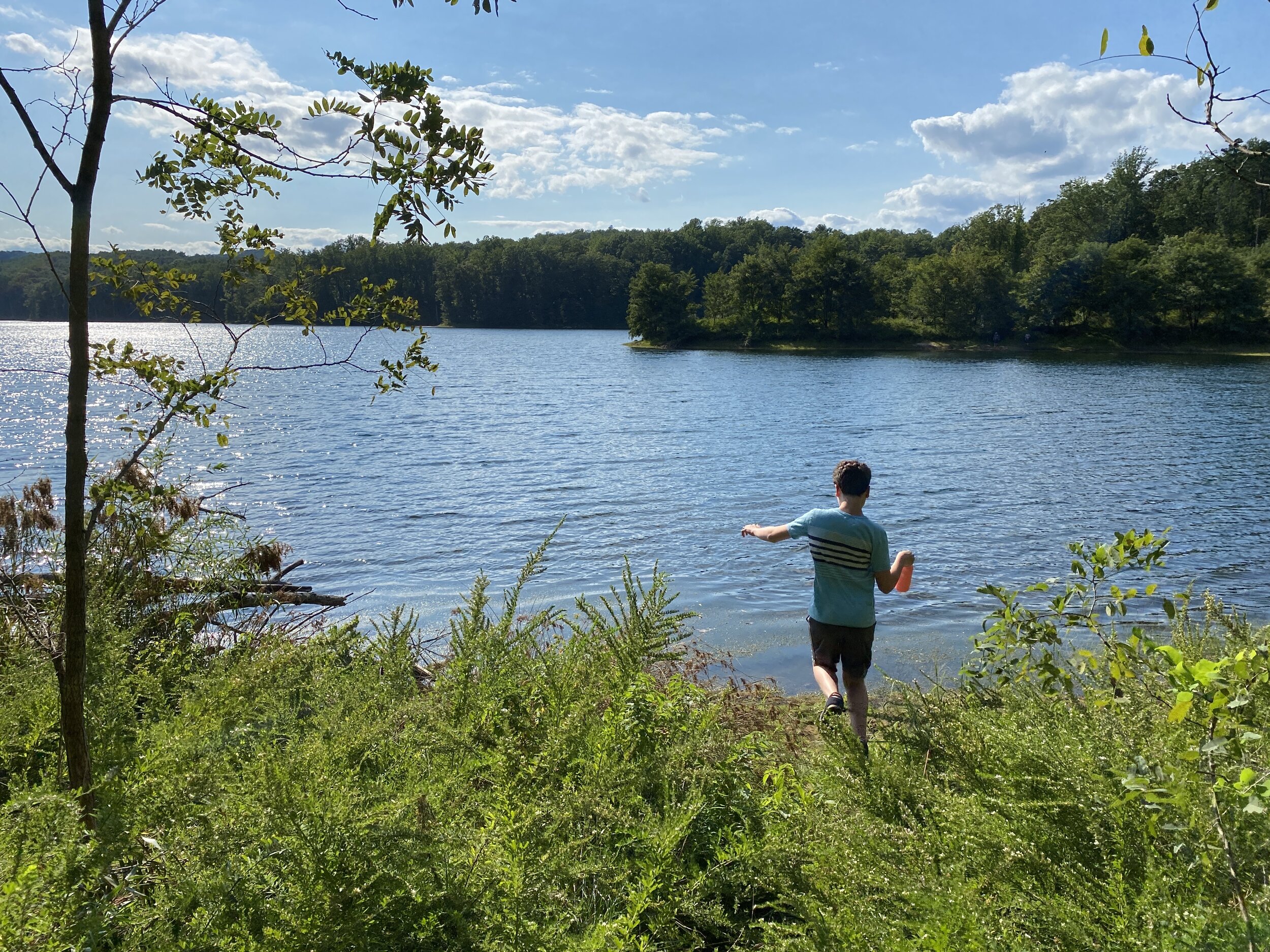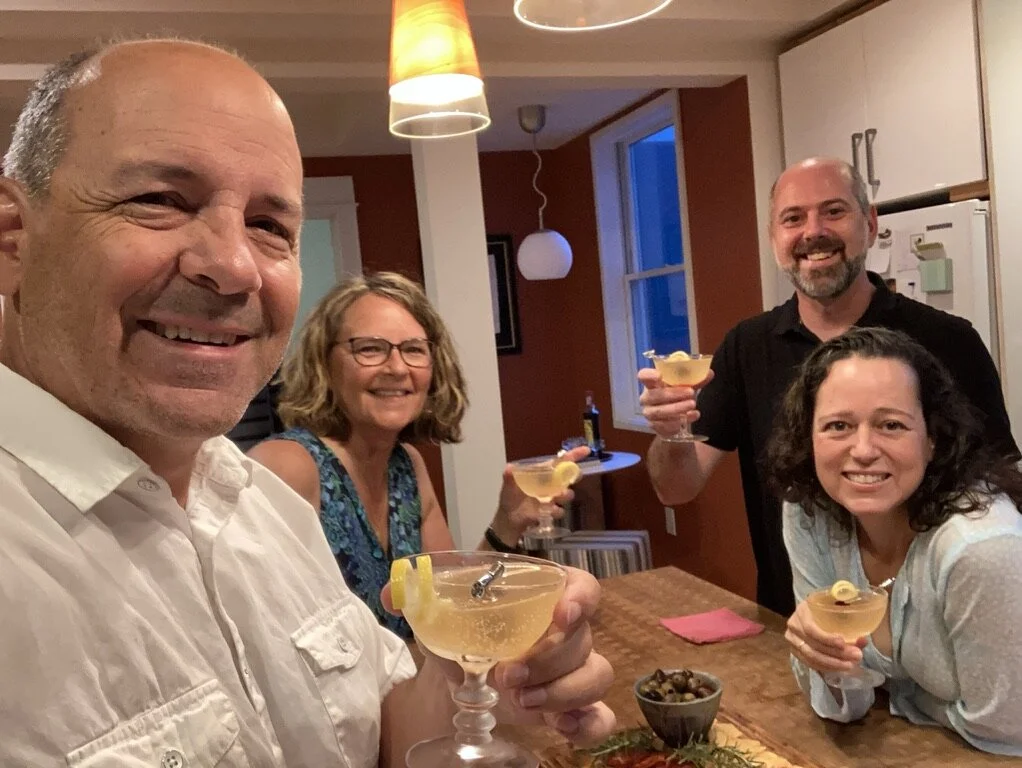I'm Back.
/Now that I’ve been home for two months, I can finally reflect on the transition pain, the reverse-culture shock, and the grief. And what I find in that reflection is that I have experienced none of those.
Dropping Siena off at Rice University
Strange, isn’t it? I assumed by now it would have hit me. Especially considering how emotionally taut I was when I returned from my first year in Spello in 2013. Those of you who read the free epilogue to Il Bel Centro: A Year in the Beautiful Center may remember the waves of pain, the feeling of being unmoored, the panic in the laundry detergent aisle at the local big box store. Nothing seemed right. Everything seemed out of place.
I, particularly, seemed out of place.
I credit our trip to France for some of the ease…the buffer softened the blow, slowing our roll and allowing me to stick the landing. Incidentally, I wonder how many metaphors I can mix in a given sentence?
Besides the terraced reentry, there’s also something to be said for preparation. As I wrote in The Road Taken: How to Dream, Plan, and Live Your Family Adventure Abroad, families girding for a return to home soil should bear in mind that on landing, it will feel like their entire experience abroad was a dream. The details of one’s previous daily life—charades at the butcher, sautéing up previously-unknown green stalks, the jumble of language, the stopping still at the beauty of a sudden view—all of it evaporates like morning dew when faced with the harsh heat of current reality. After speaking to so many families, I’m convinced that the mind is just deeply stupid. It can’t keep up with big information. So it resorts to trickery in order to adjust. “Oh, that shifting of your life’s tectonic plates? Nothing to worry about, just a truck going by. Life is as it ever was. Nothing to see here. ”
Baking sourdough again
It kind of makes sense, but it’s disorienting to say the least. When a whole year vanishes from your plane of existence in the span of an Alitalia flight, well, it can leave one wrong-footed. Hobbled. Tell your friends, because it can be a bit shocking for the uninitiated.
This time, though, I knew it would happen. Keith and I talked about it ahead of time, reminding ourselves that once we unlocked our Charlottesville door, the whole year in Spello would feel like it never happened. But just because it didn’t feel like it happened did NOT mean that it actually didn’t happen. Equipping ourselves to deal with brains-in-revolt helped immeasurably.
Definitely loving having my kitty back
But there was more to it, I think. Because there wasn’t just an absence of shock, there was also an absence of grief. Not that I’m complaining, but it’s strange, no? I mean, if anything Spello is even more a part of me, of my heart, of my soul. How can I leave it behind and slide so effortlessly into my American life?
My friend Emily wondered if the last time I returned, it felt like the role of Spello in my life was over. Like we’d broken up, split, divorced. But now, I’ve gone back several times, lived there again even, so it doesn’t feel “done”.
This makes sense.
Really bringing back all the classics.
When I told my friend Kamilla this theory she nodded and said she feels this way about Sweden, that it’s a door she can open when she wants to. So she can enjoy her Charlottesville life and when the hankering for home pushes against her heart, she’ll book a ticket. This rings true. After all, we know plenty of Americans in Spello (affectionately known as “Spellamericani”) who go back and forth. Unfortunately, since we don’t own a home in Spello, we can’t return with the same ease as our Spellamericani friends. But we’ve rented apartments in Spello before, we can do it again. The furniture doesn’t matter, and honestly even the view is not mission critical. No, it’s all about being in Spello.
Then I talked to my friend Dahlia last weekend, who has a special understanding on transition angst, as we met eight years ago when a mutual friend got tired of listening to us whine about returning to the United States. Dahlia and her family had spent the preceding year in Israel and after we traded blog URL’s we discovered that our last blog posts from our respective years abroad were virtually identical. Not in style (I can only wish), but in content—what we took from the experience was remarkably similar, even though our adopted homes were different in culture, language, and food-ways (a moment for me to wipe away a small tear, as Israel was one of the destinations I’d most looked forward to on our thwarted around-the-world tour).
Getting out in nature has been restorative.
I told Dahlia that this time around, i don’t feel the need to convey to people how important this journey was for me and for my family. I don’t need to have people “get it”. Before, it bothered me that nobody really seemed very interested in the year abroad. It made me feel lonely and I couldn’t help but wonder—How could this be? I felt like a whole different person, wouldn’t people who loved me want to understand this with me?
Turns out, no.
Since then, I’ve grown quite accustomed to the fact that a year is a lot of content for people to be curious about and also, it doesn’t matter if they are. I can tell you, because you are clearly curious enough to read this far, that this year, both years, really, were color photographs, standing out in a scatter of sepia. As a person who thrives on “new and different”, as a person who reaches deep contentment when I’m with family, as a person who feels best when residing in the liminal space between worlds, these abroad experiences have emotional resonance in my soul. They raise feelings of gratitude and wonder and joy and vulnerability. In these Italy years, I found an intimacy with this thing called life. I relate to my world now with deep tenderness.
Foraging for Autumn Olives
I can know this now, and not force others to see it.
I explained my realization to Dahlia and we laughed at how we’d once experienced such urgency to tell people the story, to have them understand. She likened our eight-year-ago selves to ancient mariners, desperate to convey all we saw beyond the rim of the world.
Nowadays, it just doesn’t matter to me. People ask me, “How was Italy?” and I say, “Great!” And leave it at that.
Seeing this narrative written out, I realize what else has made this return home easier than expected. As you can see, I’m talking to people… a lot. Connecting with people again, in real time, has been incredible.
Before we left Italy, my friend Leo asked me how the year compared to what I had expected and I admitted it wasn’t as social as the last time we were in Spello. I mean, obviously it wasn’t, right? It’s a pandemic, hardly the time to be dropping in on friends and planning group escapades to Le Marche… even if the government hadn’t mandated how many people you could have at your house and how far you could travel from your door (which it did, an endless freight train of mandates).
Leo chuckled and shook his head. “I told you.”
Happy faces, happy hearts…
It’s true, he had. The pandemic rocked Italy, all of her customs and habits now must be rethought and reformed. So while I regularly sat with Paola at her shop or walked with Susan in the groves or shared a meal on the terrazza with Leo whenever he came to Spello from Rome, that was it for regular socializing. Sporadic meals and spritzes and coffees with friends, but honestly most of my connection with other humans derived from my desperation to “talk to someone who is not a Damiani” and heading to the bakery when I didn’t need bread or to Corrado’s alimentari for salami when we had three.
It wasn’t just me. Once when I stood in line outside Corrado’s (pandemic rules: only three people allowed in at a time), I greeted neighbors, but mostly I eavesdropped, a thrill in my heart when I understood without even having to parse out the verbs. That’s when I heard one villager tell another, “Shopping is the highlight of my day. It’s the only time I see anybody.”
Yes.
And they brought Sagrantino!
If the pandemic taught me anything, it’s that I’m no longer the introvert I assumed I’d always be. I MISS PEOPLE. I miss cooking for them, laughing with them, hearing about the state of their hearts. The pandemic drew lines, made life so complicated in Italy that connecting, once as easy as breathing became a series of hurdles.
So coming home and connecting with people who have known me for years, who love my foibles as a part of me, who laugh at my jokes, who can predict the wackiness of me that gets lost in translation, well, it’s been a balm. Delta makes things more complicated, and I suspect that now life in Charlottesville is similar to life in Italy, but somehow it feels different when you have a long history of shared meals with people to just take those dinners outside. When you’re used to having people drop by for a margarita, it’s no problem to take those margaritas to the patio. It’s different than before, of course, a frisson of complication maybe, or more intentional thought about how to be safe, but there’s enough habit and pattern to make me remember something I’d sort of forgotten…
I love my life.
Bubble tea, aaaahhhhhh!
I feel lucky that I love my home with all its light and cozy corners. I love my neighborhood where I can walk to get a cocktail. I love how easy it is here to pick up pho for lunch and fresh corn tortillas for dinner. Mostly, I love these wickedly astonishing people who I get to connect with often enough for them to add depth and spice to my life. I’m cooking for friends again, though rarely Italian food, as I do notice a note of resistance there. Making pasta or stirring a sugo raises too much longing. I do better when I lean into the now of it all.
How long will this last? How long until it slaps me like a cold wave that an ocean divides me from my other home?
I know it’s not much longer… with the quiet that comes from seeing the kids sorted on their transitions, with so much of my writing focused on the green heart of Italy, I do experience flickers of longing.
When those flickers become a flood, I’ll start trying to figure out how and when we can return. But for the moment, I’m back. And that’s okay by me. For the moment, my goal is to write about Italy so that you don’t regret my leaving more than I do :)
Make sure you are signed up for the Grapevine so you don’t miss a beat!























